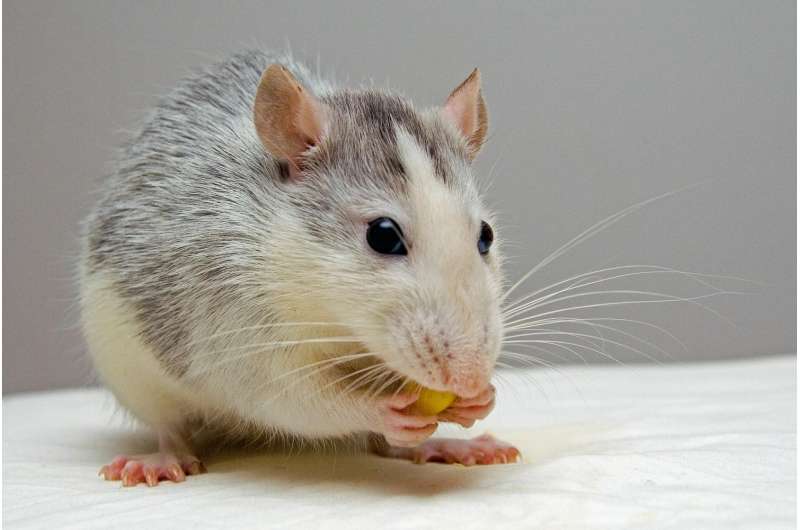May 31, 2017 report
Male rats found to pass on epigenetic susceptibility to cocaine addiction to offspring

(Medical Xpress)—A team of researchers with Fudan University in China has found that male rats are able to pass on their susceptibility to cocaine addiction through non-genetic means. In their paper published in the journal Nature Communications, the group describes how they induced cocaine addiction in test rats and tracked which offspring were more likely to develop an addition to the drug.
Scientists know that some people are more susceptible to addiction to some substances than others, including cocaine. Prior research has shown the same to be true for rats. In this new effort, the researchers sought to learn if there is a hereditary element involved in susceptibility to cocaine addiction.
To learn more, the researchers trained a group of male rats to self-medicate with cocaine by pressing a lever. Once they were addicted, the researchers forced the test rats to work harder for their drug by repeatedly pressing a lever. This allowed for measuring the degree of addiction in the rats—those with stronger addictions showed more motivation to obtain the drug by pressing the lever more times than other rats.
The researchers then separated the rats into two groups based on level of motivation, those that were highly motivated and those that were not. All of the rats were then allowed to breed and produce offspring. The team tested the offspring in the same way to see which had high motivation to obtain cocaine versus those that did not. They report that many of those with highly motivated fathers were more likely to have high motivation for cocaine themselves.
Their suspicions confirmed, the researchers then set about determining how such a susceptibility might be passed on from father to offspring. Because the behavior was seen after just one generation, it was assumed it was not due to a genetic influence, which left an epigenetic cause as the only possibility. In analyzing the sperm from the fathers, the researchers found differences in DNA methylation (a kind of epigenetic regulation for gene expression) between the rats with different degrees of cocaine addiction. They discovered the same differences in some of the offspring as well, suggesting a possible explanation for how the rats pass on a greater susceptibility to cocaine addiction.
More information: Qiumin Le et al. Drug-seeking motivation level in male rats determines offspring susceptibility or resistance to cocaine-seeking behaviour, Nature Communications (2017). DOI: 10.1038/ncomms15527
Abstract
Liability to develop drug addiction is heritable, but the precise contribution of non-Mendelian factors is not well understood. Here we separate male rats into addiction-like and non-addiction-like groups, based on their incentive motivation to seek cocaine. We find that the high incentive responding of the F0 generation could be transmitted to F1 and F2 generations. Moreover, the inheritance of high incentive response to cocaine is contingent on high motivation, as it is elicited by voluntary cocaine administration, but not high intake of cocaine itself. We also find DNA methylation differences between sperm of addiction-like and non-addiction-like groups that were maintained from F0 to F1, providing an epigenetic link to transcriptomic changes of addiction-related signalling pathways in the nucleus accumbens of offspring. Our data suggest that highly motivated drug seeking experience may increase vulnerability and/or reduce resistance to drug addiction in descendants.
© 2017 Medical Xpress
















